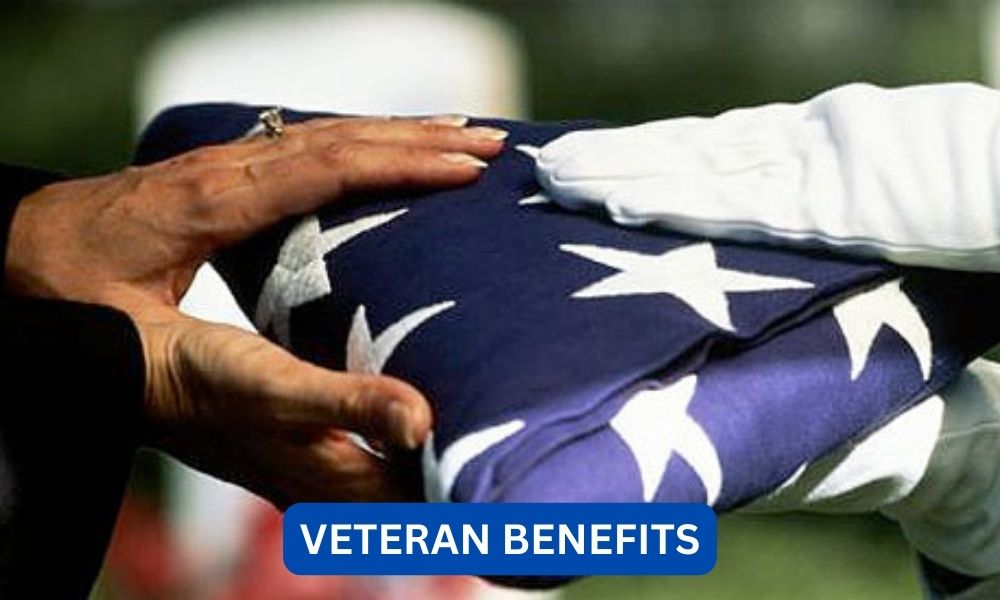The sacrifices made by veterans in service to their country are immeasurable. They put their lives on the line to protect their fellow citizens and defend their nation’s values. However, their families also make significant sacrifices, often enduring long periods of separation and the emotional toll of worrying about their loved one’s safety. When a veteran passes away, their spouse is left to cope with the loss and navigate the complex world of benefits and entitlements. One of the most common questions asked by the widow of a veteran is whether they are entitled to any benefits. In this article, we will explore the answer to this question and provide valuable insights for widows of veterans.
Contents
Understanding Veteran Benefits
Before we dive into the specific benefits available to widows of veterans, it is essential to understand the broader context of veteran benefits. The United States Department of Veterans Affairs (VA) is responsible for providing a wide range of benefits and services to veterans, their dependents, and survivors. These benefits include healthcare, education and training, disability compensation, pension, home loans, life insurance, and burial benefits.
The eligibility criteria for these benefits vary depending on the type of benefit and the veteran’s service history. Generally, a veteran must have served on active duty, been discharged under honorable conditions, and have a service-connected disability or meet specific income and asset requirements. Spouses and dependents of veterans may also be eligible for certain benefits, depending on their relationship to the veteran and their circumstances.
Read:What is fitap benefits?Eligibility for Benefits as a Widow of a Veteran
When a veteran passes away, their spouse may be eligible for certain benefits and entitlements. However, eligibility for these benefits depends on several factors, including the veteran’s service history, the cause of death, and the widow’s circumstances. Let’s take a closer look at the benefits available to widows of veterans.
Dependency and Indemnity Compensation (DIC)
Dependency and Indemnity Compensation (DIC) is a tax-free monetary benefit paid to eligible survivors of military service members who died in the line of duty or as a result of a service-connected disability. This benefit is available to the surviving spouse, children, and dependent parents of a veteran. To be eligible for DIC, the veteran must have died while on active duty, or their death must have been caused by a service-connected disability.
If the veteran’s death was not service-connected, the surviving spouse may still be eligible for DIC if the veteran was receiving or entitled to receive VA compensation for a service-connected disability at the time of their death. The surviving spouse must also meet specific income and asset requirements to be eligible for DIC.
The amount of DIC paid to a surviving spouse depends on several factors, including the veteran’s service history, the cause of death, and the number of dependents. As of 2021, the basic monthly rate for a surviving spouse without children is $1,357.56. This amount may increase if the surviving spouse has dependent children or is housebound or in need of aid and attendance.
Read:will my disability benefits change when i turn 65Survivors Pension
The Survivors Pension, also known as the Death Pension, is a tax-free monetary benefit paid to eligible surviving spouses and dependent children of deceased wartime veterans. To be eligible for this benefit, the veteran must have served during a period of war, been discharged under conditions other than dishonorable, and met specific income and asset requirements.
The Survivors Pension is based on the difference between the surviving spouse’s countable income and the annual pension limit set by Congress. As of 2021, the maximum annual pension limit for a surviving spouse without dependents is $9,224. If the surviving spouse has dependent children, the annual pension limit increases to $12,072.
Education and Training Benefits
Spouses and dependents of veterans may also be eligible for education and training benefits through the VA. These benefits include the Survivors’ and Dependents’ Educational Assistance Program (DEA) and the Fry Scholarship.
The DEA program provides education and training opportunities to eligible spouses and dependents of veterans who died or are permanently and totally disabled as a result of a service-connected disability. The Fry Scholarship is available to spouses and children of service members who died in the line of duty after September 10, 2001. Both programs provide financial assistance for tuition, books, and other education-related expenses.
Read:What documents are needed for social security retirement benefits?Home Loans
The VA offers home loan benefits to surviving spouses of veterans who died on active duty or as a result of a service-connected disability. These benefits include the VA Home Loan Guaranty Program, which allows eligible surviving spouses to obtain a home loan with favorable terms, such as no down payment and no private mortgage insurance.
Life Insurance and Burial Benefits
The VA also provides life insurance and burial benefits to eligible surviving spouses of veterans. The Servicemembers’ Group Life Insurance (SGLI) program provides life insurance coverage to service members, including those who die while on active duty. If a service member dies while on active duty, their surviving spouse may be eligible for a death gratuity payment of $100,000.
The VA also offers a variety of burial benefits, including a burial allowance, a plot allowance, and a headstone or marker. These benefits are available to the surviving spouse of a veteran who died as a result of a service-connected disability or was receiving VA compensation or pension at the time of their death.
Applying for benefits as a widow of a veteran can be a complex and overwhelming process. It is essential to understand the eligibility criteria and gather all the necessary documentation before beginning the application process. The VA also offers various resources to help widows of veterans navigate the benefits process, including the Survivors’ and Dependents’ Educational Assistance Program (DEA) and the VA’s Survivors’ and Dependents’ Benefits webpage.
Additionally, many organizations and non-profits offer assistance to widows of veterans, helping them understand their entitlements and navigate the benefits process. These organizations include the Tragedy Assistance Program for Survivors (TAPS), the American Widow Project, and the National Military Family Association.
Real-Life Examples
To better understand the benefits available to widows of veterans, let’s look at a few real-life examples.
Example 1: Jane’s husband, John, served in the Army during the Vietnam War. He passed away from a service-connected disability. Jane is now 65 years old and has an annual income of $20,000 from her part-time job. Is she eligible for any benefits as a widow of a veteran?
In this example, Jane is eligible for DIC as the surviving spouse of a veteran who died from a service-connected disability. She may also be eligible for the Survivors Pension if her income and assets fall below the annual pension limit set by Congress. Additionally, Jane may be eligible for education and training benefits through the DEA program.
Example 2: Sarah’s husband, Mark, served in the Marine Corps during the Gulf War. He passed away from a heart attack, which was not service-connected. Sarah is now 40 years old and has two children under the age of 18. Is she eligible for any benefits as a widow of a veteran?
In this example, Sarah is not eligible for DIC as her husband’s death was not service-connected. However, she may be eligible for the Survivors Pension if her income and assets fall below the annual pension limit set by Congress. Sarah and her children may also be eligible for education and training benefits through the Fry Scholarship.
Conclusion:
The widow of a veteran is entitled to certain benefits and entitlements, depending on their spouse’s service history, cause of death, and their own circumstances. These benefits include Dependency and Indemnity Compensation (DIC), Survivors Pension, education and training benefits, home loans, life insurance, and burial benefits. Navigating the benefits process can be challenging, but with the right resources and support, widows of veterans can access the benefits they are entitled to and honor their spouse’s service and sacrifice.
Remember, if you are the widow of a veteran, you are not alone. Many organizations and non-profits offer support and assistance to help you understand your entitlements and navigate the benefits process. Don’t hesitate to reach out for help and take advantage of the resources available to you. Your spouse’s service and sacrifice will never be forgotten, and you deserve to receive the benefits and support you are entitled to as their surviving spouse.









